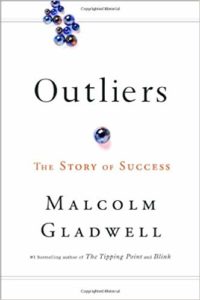Every magazine has a list of beach reads that are perfect for that summer vacation, time by the pool, or a sunny afternoon in the air conditioner on the couch. Staying cool is the theme here.
Most of these lists are full of romance titles and easy reading for enjoyment and while we love another rom com in the making just as much as anyone, we think our summer reading could have a bit of functionality and learning mixed in. So, we’ve put together a list of books for parents to pick up that will help them as they empower and support their students to reach their full potential.
 How to Talk So Kids Will Listen & Listen So Kids Will Talk by Adele Faber and Elaine Mazlish
How to Talk So Kids Will Listen & Listen So Kids Will Talk by Adele Faber and Elaine Mazlish
Internationally acclaimed experts on communication between parents and children, Adele Faber and Elaine Mazlish “are doing for parenting today what Dr. Spock did for our generation” (ParentMagazine). Now, this bestselling classic includes fresh insights and suggestions as well as the author’s time-tested methods to solve common problems and build foundations for lasting relationships, including innovative ways to:
· Cope with your child’s negative feelings, such as frustration, anger, and disappointment
· Express your strong feelings without being hurtful
· Engage your child’s willing cooperation
· Set firm limits and maintain goodwill
· Use alternatives to punishment that promote self-discipline
· Understand the difference between helpful and unhelpful praise
· Resolve family conflicts peacefully

Outliers: The Story of Success by Malcolm Gladwell
In this stunning new book, Malcolm Gladwell takes us on an intellectual journey through the world of “outliers”–the best and the brightest, the most famous and the most successful. He asks the question: what makes high-achievers different?
His answer is that we pay too much attention to what successful people are like, and too little attention to where they are from: that is, their culture, their family, their generation, and the idiosyncratic experiences of their upbringing. Along the way he explains the secrets of software billionaires, what it takes to be a great soccer player, why Asians are good at math, and what made the Beatles the greatest rock band.

Drive: The Surprising Truth About What Motivates Usby
Most people believe that the best way to motivate is with rewards like money—the carrot-and-stick approach. That’s a mistake, says Daniel H. Pink (author of To Sell Is Human: The Surprising Truth About Motivating Others). In this provocative and persuasive new book, he asserts that the secret to high performance and satisfaction-at work, at school, and at home—is the deeply human need to direct our own lives, to learn and create new things, and to do better by ourselves and our world.
Drawing on four decades of scientific research on human motivation, Pink exposes the mismatch between what science knows and what business does—and how that affects every aspect of life. He examines the three elements of true motivation—autonomy, mastery, and purpose-and offers smart and surprising techniques for putting these into action in a unique book that will change how we think and transform how we live.
 The Genius in All of Us: Why Everything You’ve Been Told About Genetics, Talent, and IQ Is Wrong by
The Genius in All of Us: Why Everything You’ve Been Told About Genetics, Talent, and IQ Is Wrong by
DNA does not make us who we are. “Forget everything you think you know about genes, talent, and intelligence,” he writes. “In recent years, a mountain of scientific evidence has emerged suggesting a completely new paradigm: not talent scarcity, but latent talent abundance.”
Integrating cutting-edge research from a wide swath of disciplines—cognitive science, genetics, biology, child development—Shenk offers a highly optimistic new view of human potential. The problem isn’t our inadequate genetic assets, but our inability, so far, to tap into what we already have. IQ testing and widespread acceptance of “innate” abilities have created an unnecessarily pessimistic view of humanity—and fostered much misdirected public policy, especially in education.

